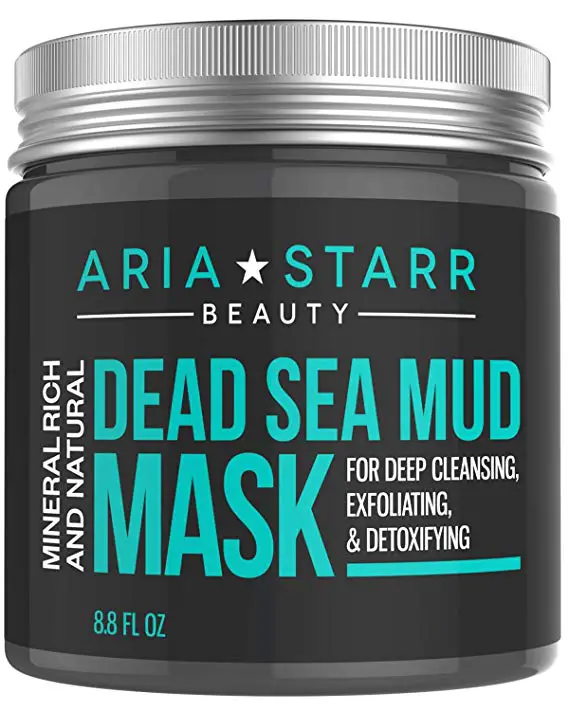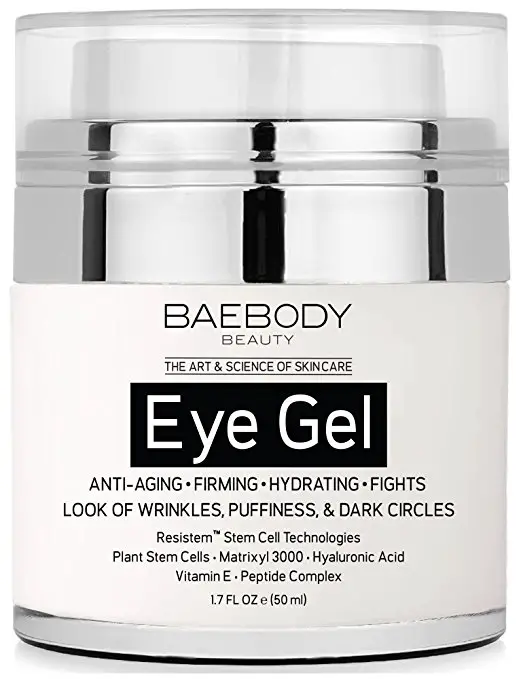Sensitive skin is probably the most delicate type of skin to handle. You have to watch the skincare products you use at all times. This is why the deodorant, antiperspirant or a combination of antiperspirant deodorant you use may be affecting your skin adversely. Hence, the question of what deodorant is good for sensitive skin arises.

Even without having sensitive skin, the armpits are a potential hive of bacterial activities. This is due to their dark, moist and warm nature. These, combined with the wrong deodorant, can cause an allergic reaction or skin irritation. How much truer are these words when it comes to sensitive skin.
The main point to look at is the ingredients. They make or mar the deodorant of your choice.
Table of Contents
Which Ingredients in Deodorant Cause Irritation?
Here are a few important ones to look out for:
- Aluminium
- Added fragrance
- Alcohol (denatured and others)
- Parabens of all types
Aluminium
How does aluminium work?
Aluminium works by stopping the flow of sweat to the surface of the skin temporarily. And it does this by obstructing the openings of the sweat ducts. The tissues of the skin absorb it and this causes inflammation or irritation for some people.
But it is the chief ingredient used in many big-name deodorant and antiperspirant products. This is because of its efficacy in stopping the free flow of sweat and odor.
So do you do away with it completely?
You can go for products with no aluminium or you pick one with a more skin-friendly form of the element. A natural formula tends to contain aluminium salts, whose molecules are larger. This means they cannot easily be absorbed by tissues so can’t cause irritation.
Video: Aluminium and What It Does
Watch as this dermatologist places aluminium and natural ingredients side by side…
Added Fragrance
How does fragrance irritate skin?
Fragrance irritates the skin by causing an explosive reaction within it. This happens because that is the only way the sweet scent can be released. This reaction happens in every skin type and not just the sensitive one.
This is also true for deodorants. They usually contain fragrance to add a pleasant and long-lasting smell to it. But in the long run, the added fragrance hurts the skin. So you could go for antiperspirants, which are less likely to contain fragrance. But this doesn’t mean all antiperspirants are fragrance-free or unscented.
Skincare experts usually recommend that people with sensitive skin avoid skincare products with added fragrances or perfume. Just check the label of the product for the ingredients and avoid any that contains fragrance or perfume, as indicated.
Alcohol (Denatured or Others)
Why does alcohol irritate the skin?
Alcohol irritates the skin because it dries the skin out with constant use. Most deodorants contain alcohol because of its ability to dissolve the other active ingredients quickly. But over time, it will cause flaking and itching on the skin.
It is less likely to be found in antiperspirant sticks so you may want to go for one. If that is not enough, avoid it totally by looking for a deodorant that contains no alcohol at all.
Parabens of all Types
They are some of the most common preservatives many brands use in cosmetic products. While paraben may not be harmful on its own, sensitive skin may react negatively to it.
However, due to the increase in awareness of its effect on the skin, there are available deodorants and antiperspirants that do not contain it. You may still want to be doubly sure so look out for ingredients that have the suffix -paraben like propylparaben and methylparaben.
These ingredients listed above are some of the most prominent ones to avoid. While the list is not exclusive, it is a pointer to what you need to avoid.
Deodorants for sensitive skin are tailored to suit and soothe easily-irritated skin while still keeping the armpits fresh and odour-free all day. These deodorants may contain more organic or natural ingredients than anything else. But experts recommend that you make sure of what is termed organic before you go for it.
Additionally, you could go for natural deodorants, which are said to be some of the best deodorants for sensitive skin. But the term ‘best deodorants for sensitive skin’ is relative because what you consider the best may not suit other people.
Check out these interesting skin care product reviews/articles:
Neutrogena Oil-free Pink Grapefruit Acne Face Wash – In-depth Review
Clean and Clear® Acne Triple Clear Exfoliating Facial Scrub – Detailed Review
AcneFree Acne Cleanser – In-depth Review
Clean & Clear Blackhead Eraser Facial Scrub – Extensive Review
Bioré Charcoal Acne Scrub – Honest Review
Humane Acne Treatment Face and Body Wash – Honest Review
What Deodorant Is Good for Sensitive Skin – The Place of Natural Deodorants
What is a natural deodorant?
A natural deodorant formula is one that contains ingredients like baking soda, aluminium salts and essential oils.
However, when choosing a natural deodorant, you may want to know that some essential oils could cause contact dermatitis or irritation for people with sensitive skin.
Cinnamon, lavender and mint are some of the essential oils that are not great for the skin. But chamomile oil is. Coconut oil may not necessarily be an essential oil but it works wonders even on the most sensitive skin.
Baking Soda as an Effective Sweat and Odor Control Agent
How does baking soda control sweat and odor in the armpits?
Baking soda controls sweat and odor in the armpits by changing the pH of the skin through its alkalinity, and absorbing every sweat. The change in pH eliminates the chances of bad odor and bacterial growth, and its absorbent nature dries up any accruing sweat.
If you have had bad experiences with deodorants and antiperspirants in the past, and would rather just not use any deodorant anymore, you could dab some baking soda to your armpits to hold off sweat. Of course, you will have to find out what amount is safe per time and how long you can use it raw. There are preparations of baking soda deodorants which you can buy from stores.
Additionally, if the case with you is that you had a bad reaction to a particular product and just need some time for your underarms to recover, using a little baking soda will tide you over. You could use it morning and evening so it can hold off sweat for 24 hours.
[amalinkspro type=”cta-btn-css” ctabtn-id=”” asin=”B075456XMK” apilink=”https://www.amazon.com/dp/B075456XMK?tag=thevinepro-20&linkCode=osi&th=1&psc=1″ addtocart=”false” new-window=”true” nofollow=”true” alignment=”alignright”]Buy this Eco-Friendly Sodium Bicarbonate (Baking Soda) on Amazon[/amalinkspro]
What Deodorant Is Good for Sensitive Skin – Bottom Line
Deodorants that have a natural formula or deodorants that don’t contain aluminium, fragrance, alcohol and any preservative are good for sensitive skin.
Try antiperspirants, as they are less likely to contain ingredients that irritate your skin. You could also make your very own unique deodorant at home.
If you decide to stick with store-bought products, be sure to go for hypoallergenic formulas. They have smaller chances of irritating you yet take you throughout the day.
Click here to read these interesting articles…
How to Improve Sagging Skin on Legs – Comprehensive Answer
What Is the Best Laser Treatment for Skin Tightening – Honest Answer
Skin After Waxing [Problems, Solutions & Care]
Skin After Weight Loss [Problems & Solutions]
Skin After Liposuction [Problems, Solutions & Care]
What Deodorant Is Good for Sensitive Skin – Related Frequently Asked Questions
How Do You Detox Your Armpit?
To detox your armpit, you have to make a paste using diluted apple cider vinegar and bentonite clay. Of course, you have to find out if your skin is compatible with the ingredients or the mixture.
In the place of the diluted vinegar, you can use coconut oil, which is more skin-friendly. But whether you choose to use vinegar or coconut oil, the main aim is to take advantage of the antibacterial properties they contain.
Apply the paste to your underarms and leave it for about 20 minutes. Once dry, wipe it off with a wet cloth or just take a shower. You can do this routine 3 times a week.
Why Is My Natural Deodorant Giving Me a Rash?
One of the reasons is the imbalance in the skin’s pH, caused by baking soda. Baking soda is alkaline in nature, which makes it great for neutralizing bacterial activity. But its alkalinity is lower than that of the skin, which makes it easy to cause irritation.
Another reason is the presence of essential oils. If the right essential oil is not used, you will get a negative reaction. Chamomile oil soothes the skin but essential oils like lavender and lemongrass will give you irritation, especially if you have sensitive skin.
Why Am I Suddenly Allergic to Deodorant?
A sudden allergic reaction to deodorant is as a result of a change in key ingredients. Sometimes, brands just change some important ingredients in their products without letting the consumers know.
If it is a new product, check for ingredients like aluminium, dye and added fragrances. If the aluminium in it is not aluminium salts, then the chances that the causative agent is aluminium is high. Sometimes, essential oils could cause an allergic reaction to deodorants.
There is also a chance your skin has developed an allergy to the usual ingredients. It happens sometimes, inexplicably.
What Happens if You Are Allergic to Deodorant?
If you are allergic to deodorants, your skin will show redness and will itch. In some cases, you will notice bumps and rashes. And those rashes will be very prickly when you sweat.
One of the first things to do is to stop using the deodorant. It is best not to use any deodorant for a few days, to give your skin time to heal. While doing this, wear loose-fitting clothes to avoid friction and further aggravation of the sensitive skin.
If there is no relief after some days, see a dermatologist. But don’t use any deodorant until all the symptoms are gone. And next time, be sure to choose an allergen-free deodorant.
How Do You Treat an Allergic Reaction to Deodorant?
To treat an allergic reaction to deodorants, you can use an antihistamine sold over-the-counter. Since the first port of call would be relief from the symptoms, a good antihistamine will give quick relief from the itching and burning. Benadryl is a good place to start.
You can also try a home remedy like calamine lotion or an oatmeal bath. You could also apply a cold compress to ease the irritation.
Bottom line is to stop using the deodorant as soon as you notice a negative reaction to it.
What Is the Best Hypoallergenic Deodorant?
The best hypoallergenic deodorant is that which contains only organic or natural ingredients. These ingredients are far less likely to cause any irritation, even on the most sensitive skin.
You will find ingredients like baking soda, essential oils like chamomile oil and aluminium salts. Aluminium salts do not cause irritation, unlike the usual type used in most deodorants.
A hypoallergenic deodorant is still very effective in curbing excessive sweating and odor all day. This is because baking soda, on its own, is superbly absorbent and good at hiding any offensive odor.


